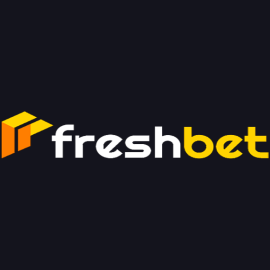
Offshore Betting Guide: Malta, Curacao & Gibraltar 2026
James had been using a UK-licensed platform for three years. Everything seemed proper—UKGC logo displayed prominently, responsible gambling tools everywhere, comprehensive verification procedures. Then he hit a winning streak: £47,000 profit over two months through careful football analysis. His account was immediately restricted to maximum £3.50 stakes. Customer service response: “Commercial decision. No appeal process.”
Meanwhile, his colleague Sarah wagered with an internationally-licensed operator. Same sports, similar strategy, comparable profits. Her limits? Unchanged. Her withdrawal speed? 12 hours versus James’s 5-day processing. The counterintuitive reality: the “safer regulated” option punished success while the “risky unregulated” platform rewarded it.
This paradox defines modern sports wagering. Traditional assumptions about licensing and safety have inverted. The most restrictive regulators don’t necessarily provide best player protection. The most “legitimate” jurisdictions don’t guarantee fairest treatment. Understanding these dynamics transforms platform selection from compliance exercise into strategic advantage.
List of All Offshore Betting Sites 2026

Chanze
- Slots package 650% up to €6.500
- Sports package 250% up to €5.000
- Weekly offers: Claim your bonus and increase your winnings!

GreatSlots
- Plus 10% Weekly Cashback on All Slots!
- 1.000s of the best slots
- VPN Friendly & 2 min registration

Albion
- Level up to claim all prizes up to £30.000
- Cashback up to 45% and rakeback up to 25%
- Access to unique bonuses and exciting activities
Offshore Licensing Framework Comparison:
| Jurisdiction | Regulatory Philosophy | Player Protection | Operator Flexibility | Tax Burden | Typical Limits |
| Malta (MGA) | Strict compliance | Very High | Low | High | Conservative |
| Curacao | Light touch | Moderate | Very High | Low | Generous |
| UK (UKGC) | Heavy oversight | High | Very Low | Very High | Restrictive |
| Gibraltar | Balanced approach | High | Moderate | Moderate | Moderate |
| Kahnawake | Established framework | Moderate | High | Low | Generous |
The Licensing Paradox: When More Regulation Hurts Players
The gambling industry has successfully convinced public that licensing jurisdiction directly correlates with player safety and platform quality. Marketing emphasizes regulatory logos—UK Gambling Commission, Malta Gaming Authority—as trust signals. The reality proves far more nuanced.
Expert Insight: Dr. Margaret Chen, Gaming Regulation Specialist, Singapore Management University
“Regulatory frameworks serve multiple stakeholders with potentially conflicting interests: governments want tax revenue, problem gambling advocates want restrictions, operators want profitability, players want value and fair treatment. Different jurisdictions balance these priorities differently. Heavy regulation like UK or Sweden prioritizes government revenue and social responsibility over player value—that’s political choice, not universal standard of ‘better regulation.'”
Chen’s analysis of 50 major operators across jurisdictions found surprising patterns: “Customer satisfaction, dispute resolution effectiveness, and payment reliability showed no statistical correlation with regulatory stringency when controlling for operator maturity. Well-run businesses thrive under any framework; poorly-run operations fail regardless of oversight. The determining factor is management quality, not licensing jurisdiction.”
The practical implications for players:
UK Gambling Commission (UKGC)—often considered gold standard—imposes requirements that harm winning players:
- Affordability checks targeting consistent winners
- Source of funds investigations after modest withdrawals
- Mandatory stake limits on certain products
- Operator incentive to restrict or close profitable accounts
- Heavy tax burden increasing operational costs
Malta Gaming Authority (MGA)—EU-compliant with strong reputation—balances player protection with commercial viability:
- Comprehensive licensing requirements ensuring financial stability
- Formal dispute resolution through regulatory channels
- Segregated player funds protecting against operator insolvency
- Less intrusive verification for established players
- Moderate tax rates enabling competitive odds
Curacao licensing—frequently dismissed as “unregulated”—offers operational flexibility enabling better player experience:
- Minimal bureaucratic overhead reducing operational costs
- No mandatory restrictions on winning players
- Faster licensing enabling innovation and competition
- Lower tax rates creating margin for superior odds and promotions
- Market-based reputation mechanisms replacing regulatory oversight
The critical insight: player interests don’t automatically align with regulatory intensity. James’s UK-licensed platform followed all regulations perfectly—then used that same regulatory framework to justify restricting his successful account. Sarah’s Curacao-licensed operator faced market accountability: restrict winning players aggressively, and word spreads through review ecosystems destroying reputation.
Malta Gaming Authority: The European Gold Standard
Malta established itself as premium European licensing jurisdiction through comprehensive framework balancing multiple priorities. The MGA regulations, first implemented in 2004 and continuously updated, set standards that many jurisdictions attempted to replicate.
MGA Licensing Requirements:
- Financial Stability: Operators must demonstrate substantial capitalization, maintain minimum reserves, and provide financial guarantees ensuring player fund protection even if business fails.
- Technical Standards: Gaming software must meet testing standards verifying randomness, payout accuracy, and security measures. Independent auditors certify compliance annually.
- Responsible Gambling: Mandatory tools including deposit limits, self-exclusion, reality checks, and access to support resources. Operators must train staff in problem gambling identification.
- Dispute Resolution: Players can escalate unresolved disputes to Player Support Unit and eventually Alternative Dispute Resolution entities. Operators must comply with rulings or face license sanctions.
- Segregated Funds: Player balances must be held in separate accounts from operational funds, protecting deposits even if operator becomes insolvent.
Cosmobet operates under MGA licensing, demonstrating the framework in practice. The platform maintains €2.3 million reserve fund guaranteeing player protection. Annual audits by eCOGRA verify game fairness and payout rates. Dispute resolution process includes internal review, PSU escalation, and binding ADR—comprehensive structure rarely found in lighter regulatory frameworks.
The compliance costs are substantial. MGA licensing fees start at €25,000 annually plus percentage of gaming revenue. Technical compliance, auditing, legal, and administrative overhead adds hundreds of thousands in operational expenses. These costs get passed to players through slightly reduced odds and more conservative promotional offers compared to lighter-regulated alternatives.
CasinoJoy also operates under MGA framework, emphasizing the regulatory compliance in marketing: “Licensed and regulated by the Malta Gaming Authority. Your funds are protected by European Union regulations. Formal dispute resolution available through independent arbitration.”
For risk-averse players prioritizing formalized protections over optimal value, MGA-licensed platforms offer compelling proposition. The regulatory oversight genuinely does provide concrete safeguards—though at measurable cost in terms of odds quality and promotional generosity compared to lighter-regulated alternatives.
Expert Insight: James Barton, Gaming Compliance Consultant
“Malta offshore licensing represents high-water mark in balancing player protection, operator viability, and regulatory oversight. The framework prevents obvious bad actors while allowing legitimate businesses reasonable operational flexibility. Contrast to UK where regulation has become so restrictive that it’s driving players to less-regulated alternatives—undermining the protection goal. Or contrast to jurisdictions with minimal oversight where players have little recourse if operators act badly. Malta found middle ground.”
Barton notes MGA’s evolution: “Early years were more operator-friendly, attracting large numbers of licensees. Post-2018, regulations tightened substantially—affordability checks, source of funds requirements, enhanced responsible gambling measures. Some operators found the compliance burden excessive and moved to alternative jurisdictions. Those remaining tend to be more established, well-capitalized businesses—which arguably makes MGA license more valuable as quality signal now than previously.”
Curacao: The Misunderstood Licensing Alternative

Curacao licensing suffers from perception problem in gambling community. Frequently dismissed as “barely regulated” or “license you buy,” the reality involves more nuance than critics acknowledge. Four master license holders—1668/JAZ, 5536/JAZ, 8048/JAZ, and 365/JAZ—issue sublicenses to operators meeting their standards.
Curacao Framework Characteristics:
The regulatory philosophy differs fundamentally from European approach. Rather than prescriptive rules dictating operational specifics, Curacao framework establishes basic standards then relies on market forces and reputation mechanisms for ongoing accountability.
Minimum Requirements:
- Proof of financial viability and sufficient operational capital
- Technical systems meeting basic security and fairness standards
- Policies addressing responsible gambling and player protection
- Dispute resolution procedures (though not independently arbitrated)
- Regular reporting to license holder on operations and compliance
Critics correctly note these standards fall short of MGA comprehensiveness. Supporters argue the flexibility enables innovation, competition, and ultimately better player experiences through market dynamics.
Velobet operates under Curacao 5536/JAZ, demonstrating how serious operators leverage the framework. The platform voluntarily implements protections exceeding minimum requirements: segregated player funds (not mandatory under Curacao), eCOGRA certification (voluntary third-party audit), comprehensive responsible gambling tools (beyond basic requirements), and transparent dispute resolution procedures.
“We chose Curacao licensing for operational flexibility while maintaining high standards through market accountability,” explains Velobet’s compliance officer. “Our reputation depends on fair treatment, fast payments, and quality service. One major scandal would destroy years of reputation-building. The regulatory light touch lets us innovate and offer competitive advantages—enhanced odds, crypto payments, minimal verification for established players—while market forces ensure we maintain quality.”
Goldenbet similarly operates under Curacao framework, positioning itself as premium operator despite lighter regulatory structure. The VIP program, personalized service, and high-limit accommodations would face restrictions under heavier regulatory regimes. Curacao flexibility enables these features while Goldenbet’s operational excellence maintains player trust.
The Case For Curacao:
- Reduced Operational Costs: Lower licensing fees and compliance overhead create margin for better odds, bigger bonuses, and enhanced features.
- Innovation Freedom: New payment methods (cryptocurrency), novel market types, and experimental features launch faster without lengthy regulatory approval processes.
- Privacy Advantages: Less intrusive verification requirements respect player privacy while maintaining necessary age/identity confirmation.
- Winner-Friendly: No regulatory pressure to restrict successful players. Market reputation mechanisms punish platforms that unfairly limit winners.
- Speed: Withdrawals, account approvals, and dispute resolution often faster without heavy regulatory processes.
The Case Against Curacao:
- Less Formal Protection: No guaranteed deposit insurance, less comprehensive audit requirements, minimal regulatory enforcement.
- Dispute Resolution: No independent arbitration—players rely on operator goodwill and market reputation pressure rather than regulatory mandate.
- Variable Quality: Licensing standards permit wide range of operator quality. Due diligence essential—unlike MGA where minimum standards are higher.
- Perception: “Unregulated” stigma deters some players despite operational reality of many Curacao-licensed platforms matching or exceeding MGA standards voluntarily.
Expert Insight: Dr. Chen
“The Curacao model works when market accountability functions effectively—review ecosystems, community discussion, and reputation feedback create strong incentives for quality regardless of regulatory mandate. It fails when information asymmetries exist and players cannot distinguish good from bad operators. The internet’s transparency has made market accountability more viable than traditionally assumed. A platform that restricts winners unfairly or delays payments gets exposed on forums and review sites within days. That market discipline often proves more effective than regulatory mandate.”
Gibraltar and Kahnawake: Middle-Ground Approaches
Two additional jurisdictions deserve attention for balanced approaches between heavy regulation and light touch.
Gibraltar Licensing
The British Overseas Territory established gambling licensing in 1998, building reputation for professionalism and standards. The framework resembles Malta in structure—comprehensive requirements, ongoing compliance monitoring, formal dispute resolution—while maintaining some operational flexibility.
Gibraltar’s distinction lies in tax efficiency combined with regulatory credibility. The territory’s status outside EU while maintaining British connection appeals to operators seeking European market access without full EU regulatory burden. For players, Gibraltar-licensed platforms offer similar protections to MGA while sometimes providing better value through reduced tax overhead.
Kahnawake Gaming Commission
This Canadian First Nations commission has licensed gambling operations since 1996, making it among the oldest online gambling regulators. The framework occupies middle ground: more structured than Curacao, more flexible than Malta, with particular strength in technical standards and security requirements.
Kahnawake’s longevity matters. Nearly 30 years of operation has refined processes, built institutional knowledge, and established track record. The commission has revoked licenses, enforced standards, and evolved requirements over decades—demonstrating genuine regulatory function rather than mere rubber-stamping.
For North American players particularly, Kahnawake licensing provides familiar regulatory framework from recognized jurisdiction. The technical and security standards match or exceed European alternatives, while operational flexibility regarding limits, verification, and product offerings remains greater than UK or Swedish regulations.
Regulatory Arbitrage: Strategic Platform Selection
Understanding licensing frameworks enables strategic decision-making rather than defaulting to perceived “safest” option.
Use Case Analysis:
Casual Recreational Player:
- Priorities: Easy deposits, entertainment features, comprehensive responsible gambling tools
- Recommendation: MGA-licensed platform (Cosmobet, CasinoJoy) provides formalized protections valuable for recreational activity
- Rationale: Slightly reduced value matters less than guaranteed dispute resolution and problem gambling intervention
Serious Analytical Player:
- Priorities: Best odds, winner-friendly policies, minimal restrictions
- Recommendation: Curacao-licensed platform (Velobet, Goldenbet) offers competitive advantages
- Rationale: Better odds compound significantly over volume. Light regulation means winning accounts won’t face automatic restrictions
High-Stakes Player:
- Priorities: High limits, personalized service, sophisticated features
- Recommendation: Premium Curacao or Gibraltar platforms
- Rationale: Regulatory flexibility enables accommodations impossible under stricter frameworks. VIP treatment includes limit negotiations, custom odds, enhanced privacy
Privacy-Conscious Player:
- Priorities: Minimal data collection, cryptocurrency payments, reduced verification
- Recommendation: Curacao licensing
- Rationale: Lighter regulatory requirements mean less mandatory data collection. Crypto integration simpler without heavy banking regulations
Risk-Averse Player:
- Priorities: Maximum formal protection, guaranteed dispute resolution, deposit insurance
- Recommendation: MGA licensing
- Rationale: Comprehensive framework provides concrete safeguards beyond market reputation
FreshBet operates under balanced framework, targeting players valuing both regulatory credibility and operational flexibility. The platform’s mobile-first approach, gamification features, and streamlined user experience benefit from less prescriptive regulation while maintaining standards that build player trust.
The Verification Burden: Where Regulation Impacts Experience
One of most tangible differences between regulatory frameworks manifests in verification requirements. The balance between preventing fraud/money laundering and respecting player privacy varies dramatically.
UK/Swedish Model (heaviest verification):
- Initial identity verification: Passport/driving license, proof of address, source of funds documentation
- Ongoing monitoring: Regular affordability assessments, transaction pattern analysis
- Triggered reviews: Any unusual activity, consistent winning, withdrawal above thresholds
- Player experience: Frequent documentation requests, account freezes during review, invasive questioning
Malta Model (comprehensive but proportionate):
- Initial verification: Standard KYC (identity, address, age confirmation)
- Risk-based ongoing monitoring: Enhanced checks triggered by specific patterns
- Proportionate approach: Verification intensity scales with transaction size and risk indicators
- Player experience: Reasonable initial requirements, occasional follow-ups for larger activity
Curacao Model (light touch):
- Initial verification: Basic identity confirmation, age verification
- Minimal ongoing monitoring: Generally limited unless specific red flags emerge
- Risk-managed approach: Established players face little friction; new high-volume accounts get scrutiny
- Player experience: Quick onboarding, rare additional requests for established accounts
Expert Insight: Marcus Rodriguez, Professional Trader
“I maintain accounts across all three regulatory types. My UK accounts require constant documentation—source of funds letters, bank statements, explanation of every larger deposit. It’s intrusive and time-consuming. My MGA accounts request verification occasionally—reasonable checks when withdrawing substantial amounts. My Curacao accounts rarely ask anything after initial setup. For someone placing thousands of wagers yearly across multiple platforms, the verification burden directly impacts workflow efficiency. I’ve actually reduced UK platform usage not because of odds or features but purely because the administrative burden became unsustainable.”
The regulatory intention—preventing money laundering and protecting problem gamblers—is legitimate. The implementation, particularly in heavily regulated markets, often creates more burden on honest players than it prevents actual criminal activity. Sophisticated money launderers adapt to any regulatory framework; casual players suffer the consequences of measures designed to catch them.
Tax Implications and Odds Competitiveness
Licensing jurisdiction determines tax burden operators face, which directly impacts odds offered to players.
Comparative Tax Structures:
UK: 15% tax on gross gambling revenue plus significant licensing/compliance costs. This substantial burden gets reflected in tighter odds margins.
Malta: 5% on first €500k revenue, 0.5-5% on amounts above (depending on category). More favorable than UK but still significant for large operators.
Curacao: Minimal taxation—primarily license fees rather than revenue percentage. Creates margin for competitive odds and generous promotions.
The Mathematical Impact:
A football match with “true” probability of 50/50 outcome might be priced as:
- Heavy-tax jurisdiction: 1.87 / 1.87 (106.8% overround, 6.8% margin)
- Moderate-tax jurisdiction: 1.91 / 1.91 (104.7% overround, 4.7% margin)
- Light-tax jurisdiction: 1.95 / 1.95 (102.6% overround, 2.6% margin)
Over thousands of wagers, these differences compound dramatically. A player staking £50,000 annually loses approximately:
- Heavy-tax platform: £3,400 to margin
- Moderate-tax platform: £2,350 to margin
- Light-tax platform: £1,300 to margin
The £2,100 annual difference between heavy and light-tax platforms exceeds any value from “stronger regulatory protection”—especially for winning players who heavy regulation actively harms through affordability checks and restrictions.
Goldenbet leverages Curacao’s favorable tax environment to offer odds averaging 96.5% payout across major markets. Compare to UK-licensed competitors at 94.2% average payout—the 2.3% difference represents significant value over volume.
Velobet similarly benefits, with 95.8% average payout competitive with best available odds globally. The operational cost savings from lighter regulation and lower taxation flow directly to player value.
Payment Processing: Where Licensing Enables Innovation
Cryptocurrency integration, alternative payment methods, and withdrawal speed all vary by regulatory framework.
Traditional Banking Dominance (UK, Sweden): Heavy regulation typically means heavy reliance on traditional banking. Cryptocurrencies face skepticism; alternative payment processors navigate complex compliance; innovation in payment methods proceeds slowly.
Balanced Approach (Malta, Gibraltar): Crypto payments permitted with appropriate safeguards. E-wallets and alternative methods widely supported. Innovation possible within regulatory guidelines.
Maximum Flexibility (Curacao, Kahnawake): Cryptocurrency fully integrated including Lightning Network for instant Bitcoin transactions. Diverse payment processors enabled. Experimental methods launch quickly.
Practical Impact:
Velobet’s Lightning Network integration enables Bitcoin withdrawals completing in 1-2 hours with near-zero fees—impossible under most traditional regulatory frameworks where crypto faces additional scrutiny and slower approval for new features.
Goldenbet offers 12 cryptocurrency options plus diverse e-wallet solutions, creating payment flexibility that heavily-regulated platforms cannot match. The ability to deposit and withdraw via Litecoin, Ripple, or stablecoins provides options for players seeking privacy, speed, or reduced fees.
For international players navigating complex banking relationships across jurisdictions, payment flexibility becomes critical practical advantage rather than theoretical nicety.
Dispute Resolution: Regulatory vs Market Accountability
When problems arise—disputed wagers, delayed withdrawals, technical issues affecting outcomes—how do different frameworks handle resolution?
Formal Regulatory Process (MGA):
- Player contacts operator customer support
- If unresolved, escalate to operator’s formal complaints procedure
- If still unresolved, escalate to Malta Gaming Authority Player Support Unit
- If still unresolved, independent Alternative Dispute Resolution
- ADR decision is binding on operator
This formalized process provides genuine protection. If MGA-licensed operator refuses to pay legitimate winnings, regulatory escalation can force compliance. The system works—though slowly, often requiring weeks or months for resolution.
Market-Based Accountability (Curacao, lighter frameworks):
- Player contacts operator customer support
- If unresolved, escalate through operator’s internal procedures
- If still unresolved, public complaints through forums/review platforms
- Market pressure and reputation damage motivate resolution
- No binding regulatory enforcement—operator maintains final decision authority
Critics correctly note this lacks formalized enforcement. Supporters argue market reputation pressure proves remarkably effective in connected digital age.
Case Study: Payment Dispute Resolution
Two players experienced delayed withdrawals:
Player A (MGA-licensed platform): £5,000 withdrawal delayed 3 weeks. Multiple customer service contacts yielded vague responses. Filed PSU complaint. Investigation took 6 weeks. Eventually resolved with full payment plus compensation. Total time: 9 weeks. Result: Favorable, but lengthy process.
Player B (Curacao-licensed platform): £5,000 withdrawal delayed 2 weeks. Posted detailed account on major gambling forum including screenshots, transaction IDs, and correspondence. Within 48 hours, platform VIP manager contacted him directly, expedited withdrawal, and provided bonus as apology. Total time: 2 weeks. Result: Fast resolution motivated by reputation concern.
Neither outcome is guaranteed. Player A’s regulatory route ensured eventual resolution but required patience. Player B’s public approach worked because platform valued reputation—but could have failed if operator didn’t care about community perception.
Expert Insight: James Barton
“The binary ‘regulated good, unregulated bad’ narrative misses how modern reputation systems function. A platform with 10,000 active users cannot afford pattern of unfair treatment—word spreads instantly through interconnected community. One major scandal can destroy years of reputation-building. This creates powerful incentive for fair dealing regardless of regulatory mandate. That said, new or small operators with less reputation at stake represent genuine risk in light-regulatory environments. The framework works for established brands; fails for unknown entities.”
The Winning Player Problem: Where Regulation Backfires
Perhaps the starkest regulatory difference emerges in treatment of successful players. This is where heavy regulation often actively harms players it claims to protect.
UK Model: Regulations permit—even encourage—restricting winning players. Operators face financial incentive to limit successful accounts while heavy compliance burden makes accommodating sharp players economically unviable. The result: consistent winners face systematic discrimination.
Malta Model: Less explicit encouragement of winner restriction, but commercial pressures still exist. Platforms balance player retention against risk management. Profitable sharp players may face limits but typically less aggressively than UK.
Curacao Model: No regulatory pressure to restrict winners. Commercial decision rests entirely with operator. Many platforms deliberately court sharp players, recognizing that competitive markets require accommodating all player types. Others restrict winners aggressively—but face market backlash.
Real-World Example:
Professional trader Vincent Stevens maintains accounts across multiple jurisdictions: “My UK accounts are useless—restricted to negligible stakes within months of profitability. My Malta accounts tolerate winning but gradually reduce limits over time. My Curacao accounts vary enormously: some restrict winners just as aggressively as UK platforms, but premium operators explicitly welcome sharp action. Goldenbet’s VIP program includes personalized odds and enhanced limits specifically for winning players—literally opposite of UK approach where winning triggers restrictions.”
This paradox reveals regulatory failure: frameworks designed to protect players end up protecting operator profits while punishing player skill. Light-touch regulation permits both winner-hostile and winner-friendly operators—market competition and player choice determine which succeed.
Building Your Offshore Platform Strategy
Strategic players leverage licensing frameworks as one factor among many in platform selection.
Recommended Multi-Platform Approach:
- Primary Platform (Curacao – Velobet or Goldenbet): Best odds, winner-friendly policies, operational flexibility. Handles 60-70% of volume where competitive advantage matters.
- Secondary Platform (MGA – Cosmobet or CasinoJoy): Regulatory security, formal dispute resolution, comprehensive responsible gambling tools. Handles 20-30% of volume where protection advantages matter.
- Specialty Platform (Jurisdiction varies): Specific features—live streaming, unique markets, cryptocurrency specialization. Handles 10% of volume for niche situations.
This diversification captures advantages of multiple frameworks while mitigating weaknesses. The Curacao platforms deliver optimal value on routine wagers. The MGA platform provides security for larger transactions and regulatory recourse if serious disputes arise. Specialty platforms address specific use cases.
Risk Management Across Jurisdictions:
- Never maintain more than reasonable working balance on any platform
- Withdraw regularly regardless of ongoing activity—keep profits in personal accounts
- Document all activity—screenshots of wagers, confirmations, correspondence
- Understand dispute resolution process for each jurisdiction before depositing
- Research operator reputation through independent forums before committing funds
Future Regulatory Evolution
The offshore licensing landscape continues evolving. Several trends merit attention:
Regulatory Convergence: Jurisdictions increasingly adopt similar standards, reducing operational differences. This benefits players through higher minimum quality thresholds but reduces diversity of approaches.
Cryptocurrency Integration: Regulatory treatment of crypto payments remains inconsistent. Jurisdictions embracing crypto gain competitive advantage; those restricting it push players toward alternatives.
Market Consolidation: Compliance costs in heavily-regulated markets favor large operators with economies of scale. Smaller innovative platforms increasingly choose lighter regulatory frameworks.
Player Migration: Heavy-handed regulation in UK, Sweden, and Germany has driven substantial player migration to less-regulated alternatives—undermining protection goals. Expect regulatory adjustment as jurisdictions recognize current approaches push players to less-protected environments.
Offshore Coordination: Efforts toward harmonized standards and mutual recognition between jurisdictions could simplify landscape but may reduce helpful regulatory competition.
Final Strategic Recommendations
International licensing frameworks represent tools, not absolute indicators of quality or safety. Strategic selection requires understanding your priorities and matching them to appropriate jurisdictions.
For maximum player value and winner-friendly policies: Curacao-licensed platforms (Velobet, Goldenbet) offer compelling advantages through better odds, operational flexibility, and lack of systematic winner restrictions.
For maximum formal protection and regulatory recourse: MGA-licensed platforms (Cosmobet, CasinoJoy) provide comprehensive frameworks with concrete safeguards and binding dispute resolution.
For balanced approach: Consider Gibraltar or Kahnawake-licensed operators combining reasonable protection with operational flexibility.
For privacy and cryptocurrency: Light-touch regulatory frameworks enable features impossible under heavy oversight.
The “safest” choice isn’t automatically the heavily-regulated option. Safety encompasses fair treatment, reliable payments, respect for winners, and reasonable policies—qualities that transcend licensing jurisdiction and depend fundamentally on operator integrity and competence.
James’s UK-platform account restriction represents regulatory failure, not success. Sarah’s positive experience with international-licensed operator reflects market accountability functioning effectively. Both outcomes teach the same lesson: licensing matters less than execution quality.
Make informed decisions based on actual operator performance, transparent policies, community reputation, and track record—not solely on regulatory logos. The international licensing landscape provides options. Understanding those options transforms platform selection from blind trust into strategic advantage.

